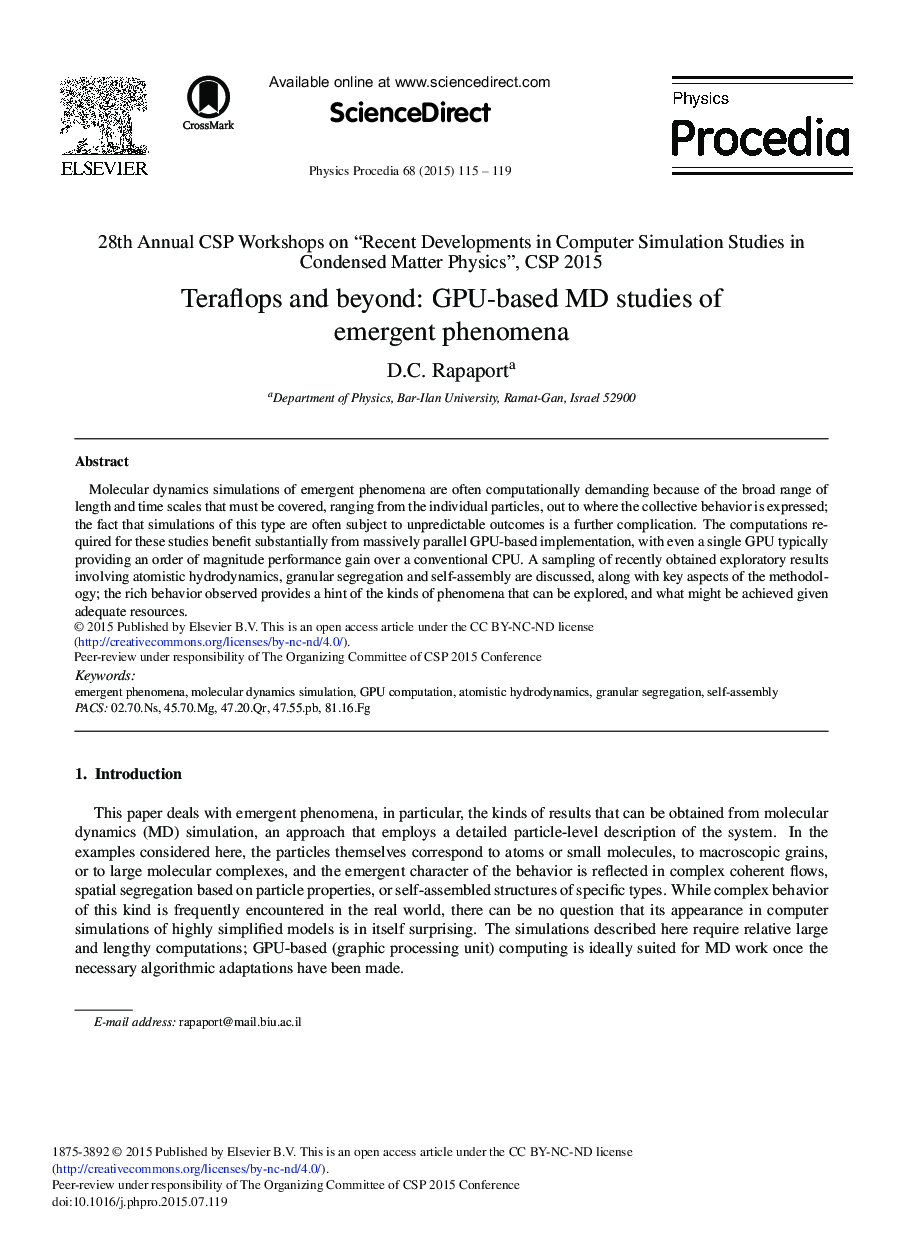| Article ID | Journal | Published Year | Pages | File Type |
|---|---|---|---|---|
| 1870015 | Physics Procedia | 2015 | 5 Pages |
Molecular dynamics simulations of emergent phenomena are often computationally demanding because of the broad range of length and time scales that must be covered, ranging from the individual particles, out to where the collective behavior is expressed; the fact that simulations of this type are often subject to unpredictable outcomes is a further complication. The computations re- quired for these studies benefit substantially from massively parallel GPU-based implementation, with even a single GPU typically providing an order of magnitude performance gain over a conventional CPU. A sampling of recently obtained exploratory results involving atomistic hydrodynamics, granular segregation and self-assembly are discussed, along with key aspects of the methodol- ogy; the rich behavior observed provides a hint of the kinds of phenomena that can be explored, and what might be achieved given adequate resources.
